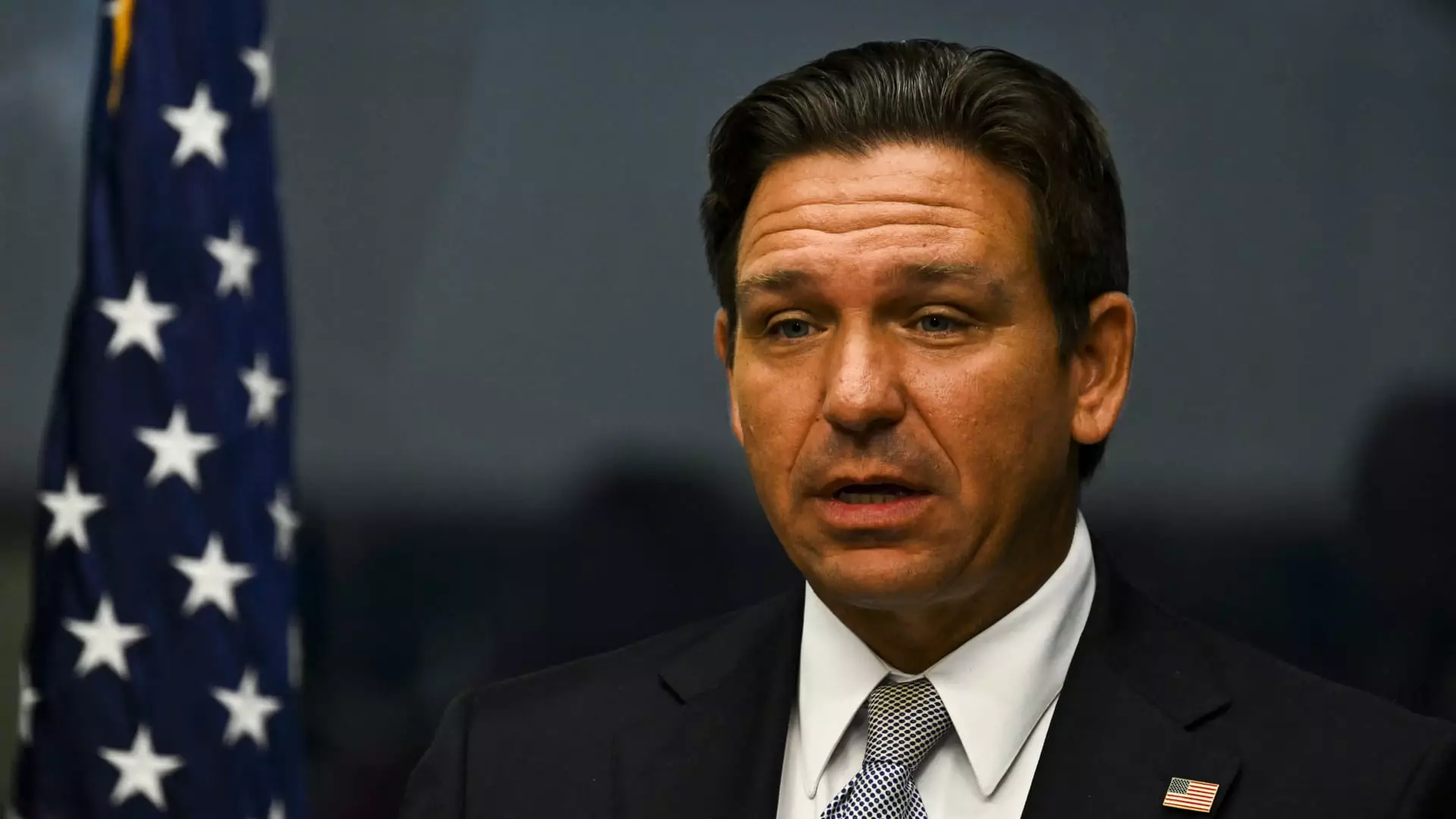In the aftermath of Hurricane Helene, which ravaged parts of Florida, the political landscape has proven to be as tumultuous as the storm itself. Florida Governor Ron DeSantis’s refusal to engage with Vice President Kamala Harris regarding recovery efforts has sparked significant debate over the intersection of politics and disaster management. According to sources close to DeSantis, his office has deemed Harris’s outreach as politically motivated, which raises questions about the refusal to collaborate during a time of crisis. Such decisions may hinder not only the recovery process but also further entrench partisan divides.
As the federal government steps in to assist with recovery, the dynamics between state and federal officials are decidedly delicate. DeSantis’s apparent decision to ignore Harris’s calls and the lack of communication with President Biden—despite acknowledging a missed call—paint a picture of estrangement that could have ramifications for residents impacted by the storm. In previous storms, collaboration between state and federal entities has often proven crucial for efficient recovery efforts. The hesitance to put politics aside may complicate access to vital aid for the affected communities.
Hurricane Helene made landfall in Florida’s Big Bend region on September 27, inflicting severe damage on rural counties and coastal cities, including Tampa. Reports of substantial flooding and debris remain top of mind for residents still grappling with the storm’s aftermath. DeSantis’s administration touted its competence in managing the crisis, asserting that the state’s resources were focused on cleanup and restoration, a sentiment that contrasts sharply with the experiences of those on the ground, who continue to face disruptions in their daily lives.
The lasting effects of Hurricane Helene extended beyond Florida’s borders, contributing to over 200 fatalities and widespread destruction throughout the Southeast. Consequently, the role of effective governance becomes apparent, raising the stakes for leaders like DeSantis. While other governors, including Georgia’s Brian Kemp and South Carolina’s Henry McMaster—both Republicans—publicly expressed gratitude for federal assistance, DeSantis’s posture stands out as marked reluctance. It begs the question: can political allegiance and local governance be reconciled when lives hang in the balance?
As Hurricane Milton looms—predicted to strike Florida’s Gulf Coast shortly after Helene—DeSantis has initiated “Operation Blue Ridge,” with state resources being dispatched to assist North Carolina. This venture highlights the state’s commitment to aiding neighboring regions, albeit overshadowed by his lack of communication with federal counterparts. The duality of actively engaging in support for adjacent states, while ignoring outreach from U.S. leadership, reflects a complicated political calculus.
The expectation surrounding Hurricane Milton adds urgency to the situation. With past events showcasing the potential for devastating consequences, it is crucial for state leadership to collaborate effectively with federal officials to reduce risks. The apparent friction between DeSantis’s team and the Biden administration could undermine efforts to strengthen preparedness as Florida braces for another storm.
Communication between governors and presidents during disasters has historically inclined toward bipartisanship, stemming from the shared goal of disaster relief. The current impasse, especially in a politically charged environment, signifies a departure from the norm. Lessons learned from previous natural disasters suggest that cooperation can lead to more successful recovery efforts and better-equipped responses in the face of future calamities.
Reflecting on past collaborations, there is a clear imperative for DeSantis and his administration to navigate their political affiliations with a conscious awareness of their duties to the citizens they serve. The refusal to engage with Harris or Biden refracts a broader trend in American politics where ideological divides can impede meaningful action in times of crisis. The true measure of leadership will ultimately depend on the ability to set aside partisanship in favor of mobilizing resources for the common good.
As residents of Florida face the daunting task of recovery, the necessity for a unified response to climate-related challenges has never been more pronounced. The intertwining of political and humanitarian duties must be carefully reconsidered, prioritizing the well-being of citizens above all. Whether DeSantis and the federal administration can forge a collaborative path forward amid the wreckage will determine not only the fate of the communities affected but also the broader implications for disaster management in a polarizing political climate.


Leave a Reply